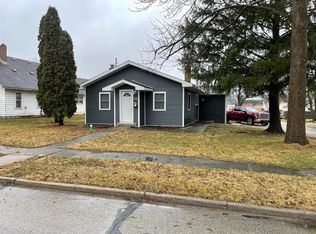Best Hard Money Lenders For Beginners: How To Get Your First Hard Money Loan

Breaking into real estate investing isn’t easy when banks turn you away because of tight lending requirements or a hard money lender turns you away for not having any real estate investment experience.
Traditional loans demand documented income requirements, take months to close, and restrict lending on distressed properties. This is where hard money lenders for beginners bridge the gap.
Built for speed and flexibility, hard money lenders fund real estate investments based on the property’s after repair value rather than your personal income and debt-to-income ratio. These loan attributes make hard money loans ideal for real estate investors pursuing short-term financing to complete fix and flip or fix and refinance projects.
Several hard money lenders sepcialize in working with first time investors and have specialized Fix and Flip Loan Programs for beginners.
This article will go through:
- A Review Of The Best Hard Money Lenders For Beginners
- What Is A Hard Money Loan and How Does it Work?
- How To Get A Hard Money Loan As A Beginner?
- Maximum Leverage Options For First Time Investors?
- Next Steps For Getting Started On Your First Hard Money Loan
Best Hard Money Lenders for Beginners in 2025
Finding the right lending partner to fund your fix and flips, is an important component of success in real estate investing. Below we’ve evaluated the top hard money lenders for beginners. This list is organized to rank lenders based on the following criteria:
- High LTV for beginner flippers.
- Coaching and support during the loan process.
- Quick closing time.
- Affordable rates and fees for beginners.
Why Ridge Street Capital Stands Out
Ridge Street Capital helps new and mid-level investors grow their portfolios with common-sense underwriting and a nationwide footprint. Unlike most lenders, Ridge Street’s minimum loan size is under $100K, allowing investors to pursue smaller, entry-level properties as they get started.
Ridge Street also offers a High FICO Program for first-time investors—financing up to 90% of the purchase price + 100% of the rehab.
To qualify, borrowers need:
- A 740+ credit score
- A project with a clear path to profitability
- A moderate rehab budget (<50% of purchase price)
You can pre-approved for this beginner hard money loan option or you can schedule a call to get more information.
What Is a Hard Money Loan and How Does It Work?
A hard money loan is a short-term financing option secured by a real estate investment, typically used for fix-and-flip or fix-to-rent projects. Unlike banks that rely on tax returns and debt-to-income ratios, these private or investor-funded lenders focus on the collateral itself, the property’s value and your plan for repayment.
That makes them a good fit for first-time investors who have strong credit and want to act quickly on fix-and-flip or short-term investment opportunities.
Hard money loans also move fast. While a bank might take 30 to 60 days to close, a hard money lender can often fund within 7 to 10 days. Approval is based on the property’s loan-to-value (LTV) or after-repair value (ARV) rather than your personal income. The loan terms are usually six to eighteen months (twelve months on average), and require a down payment of about 10% to 20%.
These loans are built for value-add investment properties while traditional mortgages suit long-term or owner-occupied homes.
Why Hard Money Loans Work for Beginners?
If you’re buying and renovating your first investment property, a hard money loan offers benefits that traditional lenders can’t match:
- Speed: You can close in days instead of months.
- Flexibility: Underwriting focuses on the deal, not your job history or income.
- Accessibility: First-time investors with strong credit can qualify, even without an established investment history.
- Scalability: Once you prove success on one project, approvals for future loans are expedited and leverage is increased with experience.
- High Leverage: Investors can purchase their first fix and flip deal for 10% down plus closing costs, if they have a profitable project lined up and a 740+ credit score.
Once you understand why hard money fits beginner investors, the next step is knowing what lenders look for in an approval.
How to Qualify for Your First Hard Money Loan?
Even if you’re new to real estate investing, lenders want to see that you understand your deal and meet their credit and liquidity requirements for the loan.
Property After-Repair Value (Profit Check)
The core basis of a hard money loan is that the expected ARV needs to be high enough to cover the loan, carry costs, closing costs, and rehab expenses—while still leaving the investor with a tidy profit. To stay profitable, hard money loans typically should not exceed 70–75% of the ARV. Beyond that, costs can eat into returns. You can estimate your project’s profit using our Fix and Flip Calculator.
Exit Strategy
Hard money lenders want to know exactly how they’ll be repaid, either through a sale or refinance with a long-term DSCR loan. A clear, time-bound exit strategy is required for any beginner investor pursuing their first fix and flip deal.
Down Payment and Reserves
Plan to bring 10–20% of the purchase price depending on your credit score and the project scope. You’ll need to have an additional 5-10% in reserves to cover closing costs and loan carry costs.
Hard Money Lenders for Beginners: Credit Requirements Explained
While some private lenders advertise “no credit check,” reputable hard money lenders still review credit as part of responsible underwriting. Credit impacts both approval and loan terms, especially for first-time investors:
- 660–699 (Moderate): May qualify, but leverage is lower, often requiring 25% down.
- 720–739 (Medium): Better terms, typically 20% down.
- 740+ (High FICO): Best leverage, potentially 10% down on a first deal.
Strong credit not only lowers the down payment but can also help borrowers secure faster approvals, higher loan amounts, and more favorable interest rates.
How to Compare Hard Money Lenders (Beginner Checklist)
Before choosing a lender, compare the following factors side by side:
- Rates and Fees: Interest typically ranges from 10–13% with 1–3 points at closing.
- Leverage: Look for up to 80–90% of the purchase price or 70–75% of ARV.
- Draw Schedule: Flexible virtual draw process with quick turnaround time.
- Beginner Support: Some lenders offer extra guidance on your first deal.
- Transparency: Avoid hidden fees, prepayment penalties, or unclear timelines.
Tip: Always ask for a term sheet before committing to verify rates, fees, and funding timelines.
Real Example: Indiana Hard Money Loan To A Beginner

- Purchase Price: $90,000
- Rehab Budget: $35,000
- ARV: $210,000
- Loan: $107,000 (80% of purchase, 100% of rehab)
- Down Payment (With Closing Costs): $23,450
- Timeline: 3 months
- Estimated Profit: $68,000 after costs
This example shows how hard money financing helps new investors act quickly on opportunities that would otherwise be out of reach.
Getting Started with Hard Money Loans for Beginners
For first-time real estate investors, hard money loans provide a practical way to gain experience and move quickly on investment opportunities. The key is working with a transparent, beginner-friendly lender that evaluates your project potential.
Ridge Street Capital helps new investors fund their first profitable deal with flexible, asset-based terms and direct support from an experienced team.
Ready to get started? Apply online with Ridge Street Capital to see your terms and close on your next opportunity.
Hard Money Loans for Beginners FAQS
What are typical interest rates on hard money loans?
Hard money loans typically have higher interest rates than traditional bank loans, usually between 10% and 13%. Borrowers often pay interest only during the loan term, with the full principal repaid at the end in a balloon payment.
Do I need a good credit score to qualify for a hard money loan?
Most reputable hard money lenders, including Ridge Street Capital, work with borrowers who have good credit, typically 660 or higher, along with a sound investment plan and exit strategy.
What determines the maximum loan amount I can get?
The loan amount is typically based on the property’s after-repair value (ARV) or loan-to-cost (LTC) ratio with heaviness of rehab and borrower credit score being contributing factors for first time investors. Most lenders finance up to 75% of ARV or 90% of purchase plus rehab costs, depending on the deal’s strength and borrower's credit profile.

Funding For Purchase + Rehab

$50,000 up to $3,000,000

Interest Rate 10.5%-11.75%

Origination Fee From 1.5%

Up to 90% of Purchase and 100% of Rehab


Perfect for first-time investors or experienced investors scaling their rental portfolio.
.png)
Designed for investors pursuing higher rents with a short term rental strategy.









.png)
.svg)
.png)

.png)
-min.png)
.png)
-min.png)







